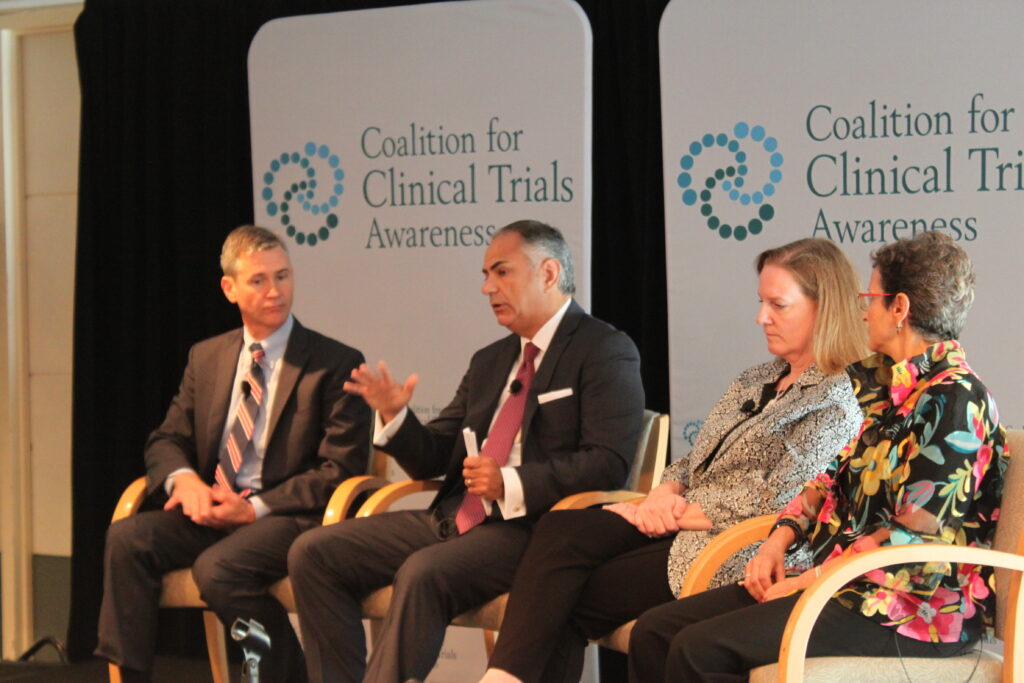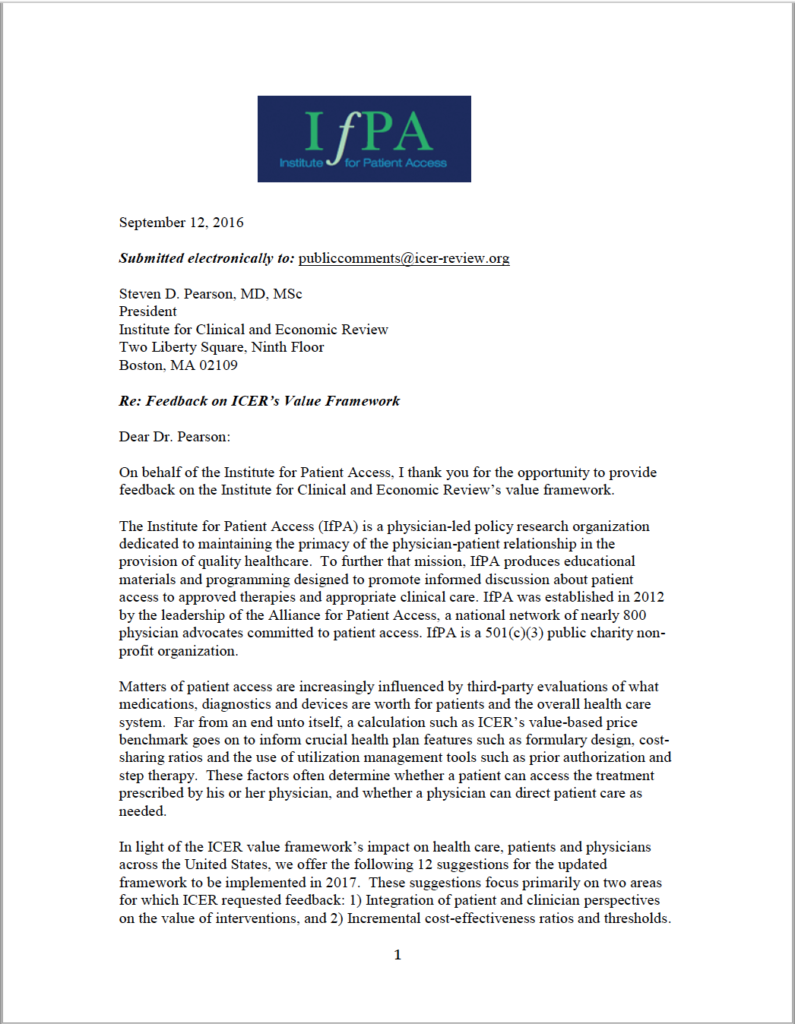CCTA Panel Explores Making Clinical Trials Conversation Standard of Care

What if discussing clinical trials opportunities were a standard part of patient care? This question spurred discussion among members of a diverse panel at a recent Coalition for Clinical Trials Awareness roundtable event.
Rx Pricing, Patents & Patient Access
A United Nations panel has a controversial idea for improving patient access to necessary medicines: curb intellectual property rights.
IfPA Urges ICER to Improve Value Framework
Along with other advocacy, education and health care organizations, the Institute for Patient Access wrote to the Institute for Clinical and Economic Review this week offering 12 suggestions on how to improve its value framework. The letter responded to ICER’s request for feedback as it prepares to update its framework for 2017.
2016 Infant Health Policy Summit
The Institute for Patient Access and the National Coalition for Infant Health hosted the 2016 Infant Health Policy Summit in Washington, DC on September 15. Health care providers, patient advocates, parents, and policy makers gathered to discuss patient access issues facing vulnerable infants and their families. Representative Katherine Clark (D-MA), for the second […]
GAfPA “NOR-SWITCH” Paper Explores Impact of Biosimilar Switching Research

Data from a clinical study in Norway may soon explain the effects of switching stable patients from a biologic medicine, infliximab, to its biosimilar counterpart. But, as the Global Alliance for Patient Access argues in a new white paper, policymakers must accurately interpret what the NOR-SWITCH study will – and will not – demonstrate about the safety of switching.
New National Coalition for Infant Health Video Introduces the RSV “Gap Baby”

Most young children encounter what’s known as Respiratory Syncytial Virus, or RSV, before age two. It’s a common seasonal virus with flu-like symptoms. But as a new video from the National Coalition for Infant Health explains, premature infants whose health plans don’t cover preventive RSV treatment may suffer – and unnecessarily so.
Feedback on ICER’s Value Framework

In light of the ICER value framework’s impact on health care, patients and physicians across the United States, we offer the following 12 suggestions for the updated framework to be implemented in 2017. These suggestions focus primarily on two areas for which ICER requested feedback: 1) Integration of patient and clinician perspectives on the value of interventions, and 2) Incremental cost-effectiveness ratios and thresholds.
New AfPA Video Identifies 3 Traits of a Workable Opioid Abuse Solution

Opioid and heroin abuse is an epidemic that kills 78 Americans every day, explains a new video from the Alliance for Patient Access. But as federal agencies, state lawmakers, professional organizations and inter-agency collaborations lay out different plans for addressing the epidemic, people must ask: Which plans will work? And which will curb abuse without undermining legitimate medical care for patients in pain?
Newborns Affected by Neonatal Abstinence Syndrome Triple
A condition that causes newborns of substance-addicted mothers to experience withdrawal symptoms is on the rise. According to data from the Centers for Disease Control and Prevention, cases of neonatal abstinence syndrome (NAS) tripled between 1999 and 2013 in 23 states. In three states – West Virginia, Maine and Vermont – the condition now affects more than 30 infants per 1,000 births. Policymakers have proposed several solutions to address not only NAS but also opioid and heroin abuse, which are common contributors to the condition.
New Data Spark Debate on Cost and Value of Breakthrough Cholesterol Meds
A new analysis calls for drastic price reductions for PCSK9 inhibitors, breakthrough lipid-lowering medications. Data published in the Journal of the American Medical Association suggest that the treatments would need to be reduced to two-thirds their current price to meet analysts’ cost-effectiveness thresholds.

